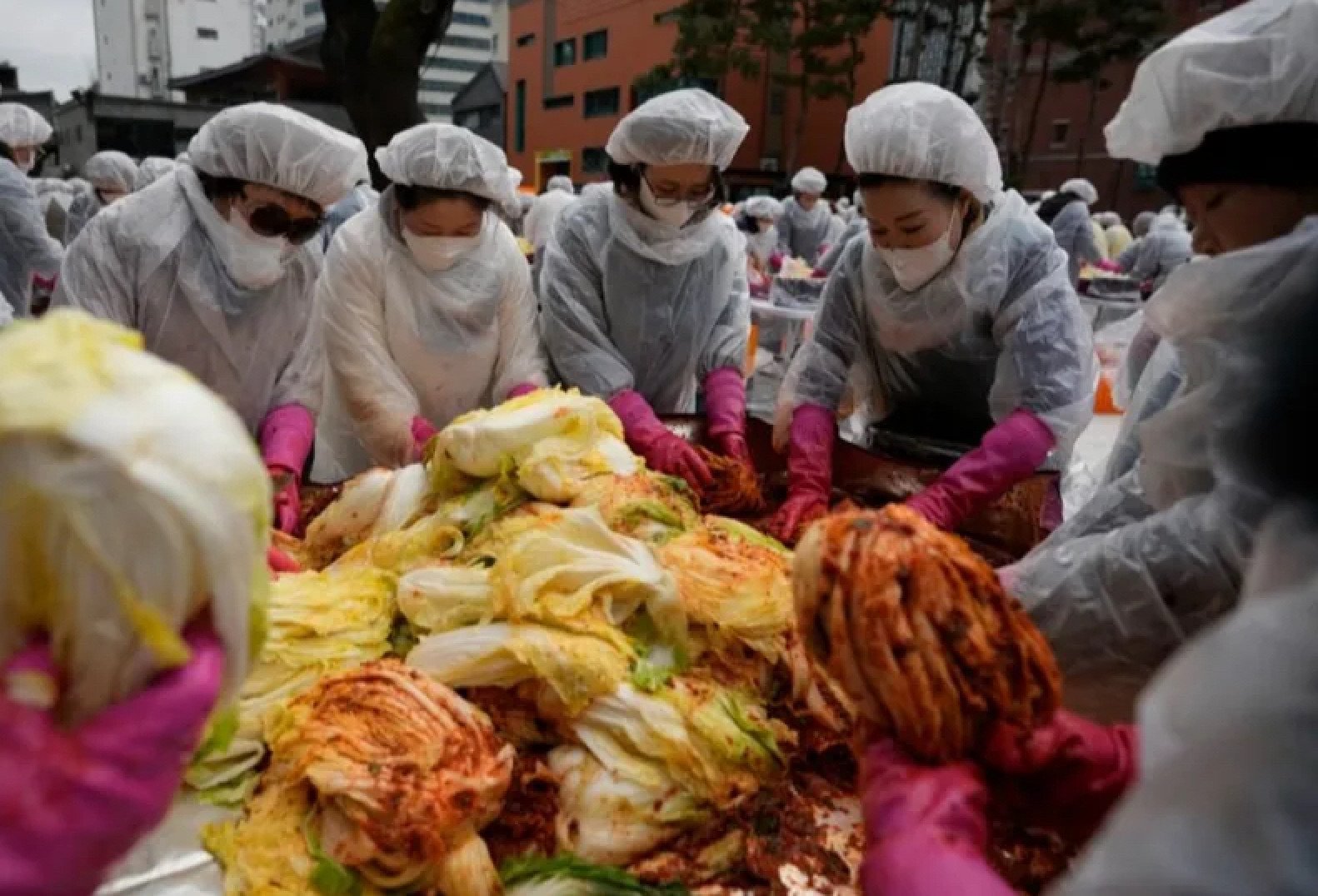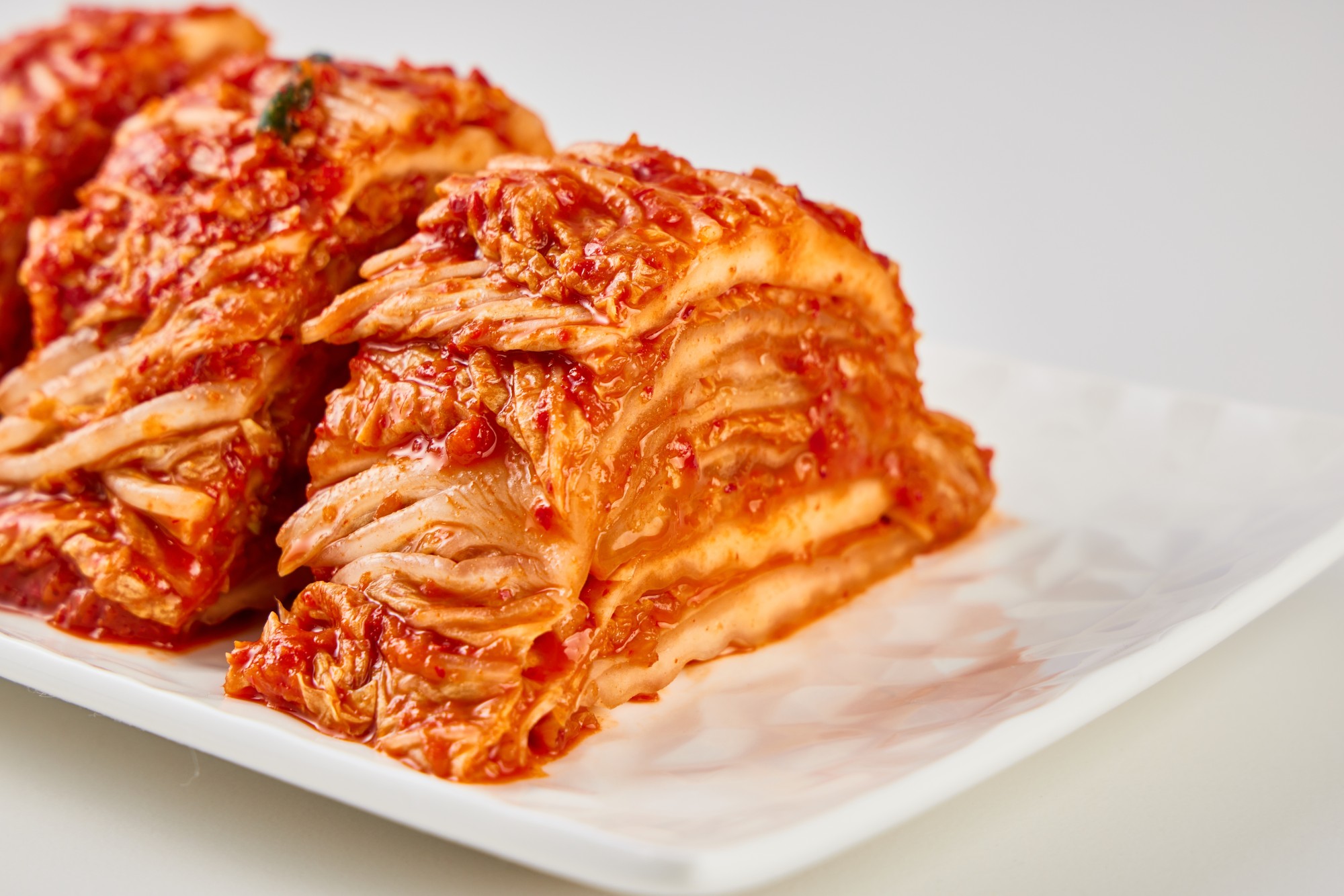A heated international row has broken out over the most unlikely of culinary matters, kimchi.
Netizens in South Korea are demanding the Chinese word used for the spicy food be changed from la bai cai to xinqi to properly reflect their cultural identity.
Their calls have sparked a fierce backlash in China, with some people even calling for sanctions on cabbage exports from the mainland to South Korea.
Do you have questions about the biggest topics and trends from around the world? Get the answers with SCMP Knowledge, our new platform of curated content with explainers, FAQs, analyses and infographics brought to you by our award-winning team.
The traditional Korean side dish made from fermented cabbage, salt and hot peppers, is served with almost every meal in the country and holds significant cultural importance.
Kimchi is also popular in other Asian countries, and has diverse names such as la bai cai (spicy white cabbage) and pao cai (fermented vegetables).
The recent controversy emerged from a Netflix reality show, Super-Rich in Korea, which debuted in May and showcases the extravagant lifestyles of wealthy individuals from Singapore, Italy and Pakistan who are living in South Korea.
In episode six, while the cast members were preparing kimchi, the Chinese subtitles translated it as la bai cai, leading to objections from Koreans.

They argued that this translation has Chinese cultural implications, prompting an online petition demanding Netflix correct the subtitles.
Professor Seo Kyung-duk of Sungshin Women’s University in the country’s capital Seoul also wrote to Netflix, demanding they rectify the error to “prevent global audiences from misunderstanding Korean history and culture”.
Known for addressing cultural debates between China and Korea, Seo has often faced criticism for his one-sided and aggressively anti-China stance.
For example, on January 28, he posted on X, calling for a change to the English term for the Chinese Spring Festival to Lunar New Year, arguing that the festival is celebrated in several Asian countries, not just China.
In response to the kimchi controversy, Netflix explained that la bai cai was initially chosen to facilitate better understanding because it is more familiar to overseas Chinese speakers.
However, it has updated the translation to xinqi, as recommended by the Korean Ministry of Culture, Sports, and Tourism in 2021.
Despite the change, the term xinqi remains largely unknown to most Chinese speakers, who are more accustomed to la bai cai.
The kimchi issue is not new, at a press conference in January, Hua Chunying, Vice Minister of Foreign Affairs of China, addressed it.
“Fermented vegetables are not unique to a few countries and regions. In China, it is called pao cai, while on the Korean peninsula and among the Korean ethnic group in China, it is known as kimchi.
“While they share similarities, they differ in ingredients, taste and preparation methods,” she said.
The minister emphasised the importance of maintaining friendly academic exchanges on culinary topics, urging parties to avoid biases that could lead to conflict.
This issue is further complicated by the fact that a significant portion of kimchi consumed in South Korea is made from Chinese-imported cabbages because they are cheaper.

A 2016 report from the World Institute of Kimchi stated that 89.9 per cent of food bought by South Korean restaurants was imported from China.
This fact has sparked further outrage on mainland social media.
“South Korea is so strange. They import their cabbage from China but claim kimchi as their own speciality,” one online observer said.
“They eat imported cabbage from us and then make such a fuss. We should stop supplying them with cabbage and see what they do. Or maybe, given the drought in Shandong province this year, double the price of exported cabbage,” said another.
“Isn’t it made from white cabbage? Isn’t it spicy? Then what’s wrong to call it ‘spicy white cabbage’? It’s far more straightforward and easy to understand,” another person chimed in.
More from South China Morning Post:
- Crying shame: China father tells daughter, 3, to fill bowl with tears as TV punishment
- South Korean parents ‘imprison’ themselves to feel pain of their reclusive children
- First-time China flier opens emergency exit thinking it is toilet door, sparks evacuation
- Hong Kong superstar Andy Lau apologises to fans for dangerous stunt during China concert
- Iron Man antics: China blast victim tries to remove metal shards from leg like superhero
For the latest news from the South China Morning Post download our mobile app. Copyright 2024.





